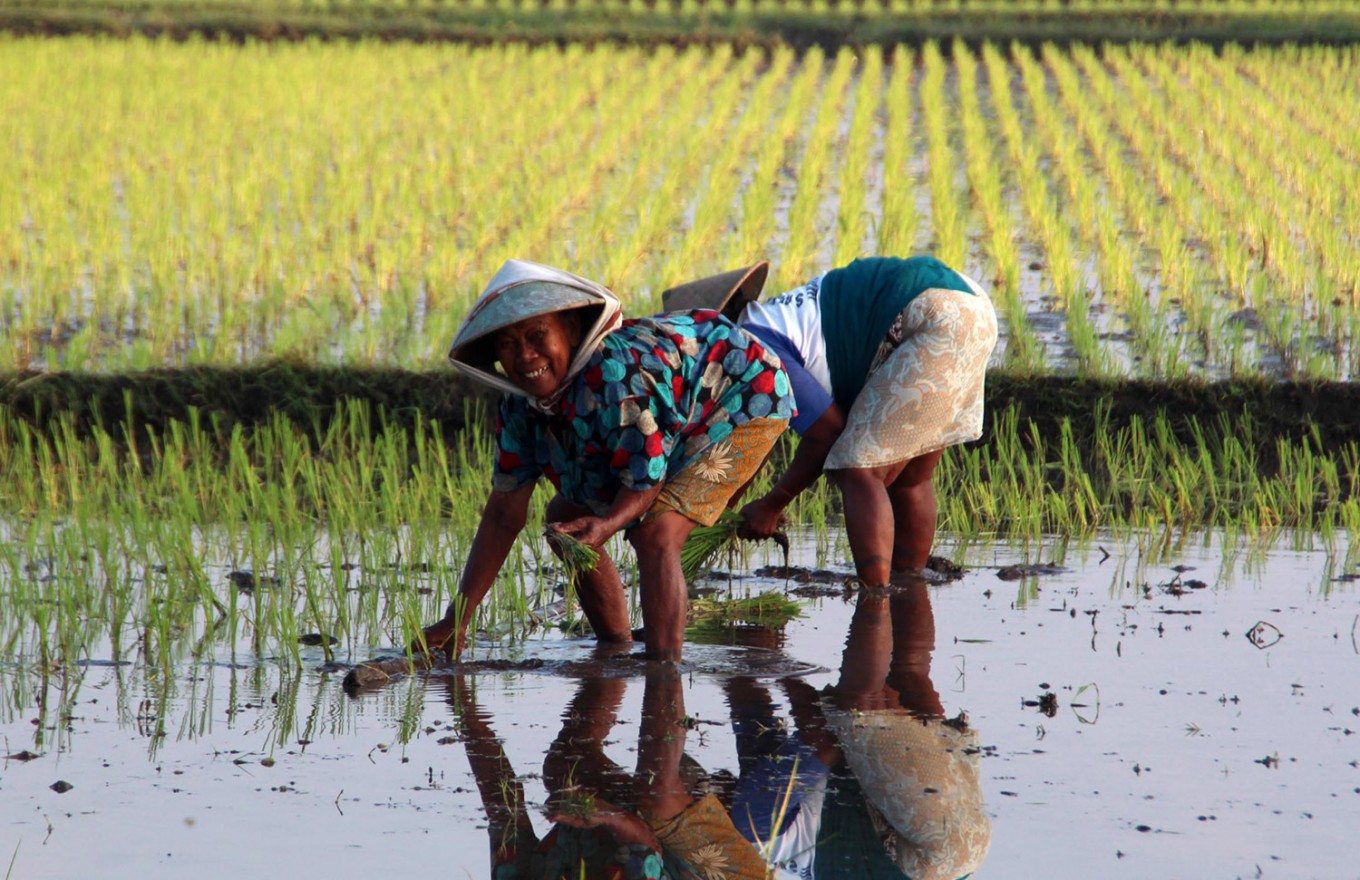Popular Reads
Top Results
Can't find what you're looking for?
View all search resultsPopular Reads
Top Results
Can't find what you're looking for?
View all search resultsIndonesia still deserves special treatment in global trade: Economists
Change text size
Gift Premium Articles
to Anyone

Indonesia still deserves special treatment in global trade despite the United States recently taking the archipelago off its list of developing countries, local economists have said.
Economists of the Institute for Development of Economics and Finance (INDEF) said that, based on its gross national income (GNI) per capita and parameters of social development, among other factors, Indonesia should still be considered a developing country.
They suggested that the government defend its developing nation status, so that Indonesia would continue to benefit from the World Trade Organization’s (WTO) special differential treatment (SDT), which exempts developing countries like Indonesia from strict trade rules.
“Why do we need to make a declaration? Because our GNI per capita is far lower than that of [developed] countries. Indonesia’s is only around US$3,800 per capita. Compared with the United States, the gap is very big,” INDEF economist Tauhid Ahmad said in a press conference in Jakarta on Thursday.
According to the World Bank’s parameter, high-income economies are those with a GNI per capita of $12,376. Indonesia with a GNI per capita of $3,840 in 2018 is considered a lower-middle-income economy, the category for countries with a GNI per capita between $1,026 and $3,995.
INDEF senior economist Aviliani said during the press conference that, based on several social development parameters, Indonesia had more characteristics of a developing country than a developed one.
“Our human development index [HDI] is still low. Even though there are funds worth Rp 500 trillion for education, but if we look at Indonesia’s population, those with higher education make up only [a small] percentage. The biggest [demographic] is junior high school [graduates],” Aviliani said, contrasting such conditions with developed countries that had tech-savvy human resources.
In the United Nations Development Programme’s Human Development Report 2018 Indonesia ranked 111th with an HDI score of 0.707, or 96 countries ranks below the US ranked in 15th place with an HDI of 0.920.
Aside from the aforementioned parameter, Aviliani explained, numerous other characteristics justified Indonesia defending its developing country status. The majority of Indonesia’s population still works in agriculture with traditional farming equipment, and high levels of unemployment were indicators of a developing country, Aviliani said.
The United States Trade Representative (USTR) rolled out a new policy in February and removed several countries from the list of developing and least-developed countries, including Indonesia.
The new policy outlines that a developed country is one with more than 0.5 percent of trade significance to the world and a member of international organizations such as the Organization for Economic Cooperation and Development (OECD) or the Group of 20 (G20).
Indonesia, accounting for 0.9 percent of global exports in 2018 and being a member of the G20, is therefore no longer eligible for subsidies.
Read also: Growing pains: US tariff policy overshadows planned Jokowi visit
INDEF researcher Ahmad Heri Firdaus said at the same event that, with the US' new policy, Indonesia’s exported goods would be subject to higher import taxes, which could increase the price of the goods in the international market.
According to a simulation he ran with the Global Trade Analysis Project (GTAP), assuming that import tax would rise to 5 percent from the current position, Indonesia’s main export products to the US would suffer a loss of up to 2.5 percent. Several commodities would be affected, for example, textile product exports would decrease by 1.56 percent and components for electric machines were projected to decrease by 1.2 percent.
“We can still claim to be a developing country, [but] of course, supported by strong research,” Heri said. (ydp)










